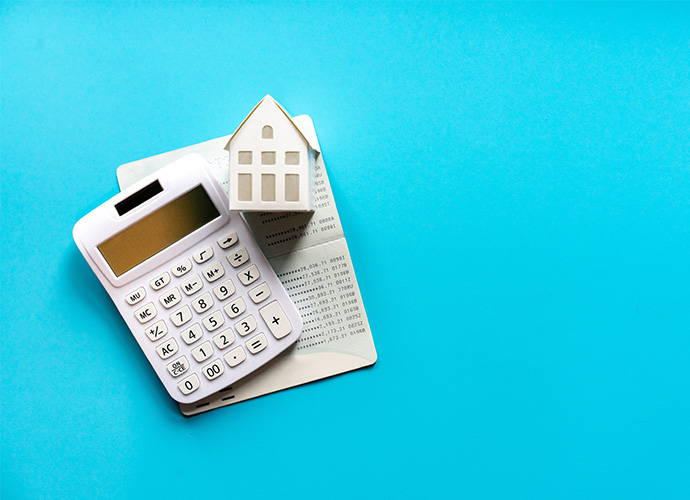One of the most common questions prospective homebuyers ask is, “How much mortgage can I get?” This is a crucial aspect of the homebuying process, as it determines the type of property you can afford and how comfortably you can manage the repayments. In this article, we’ll delve into the typical mortgage lending rules in the UK, covering affordability, deposits, and credit worthiness, among other factors. We’ll also provide some guidance on how to calculate your borrowing capacity and offer tips for improving your chances of securing a mortgage.

1. Affordability
Mortgage affordability is a primary consideration for lenders when determining how much they’re willing to lend you. Lenders typically use a multiple of your gross annual income to work out the maximum amount they’re willing to offer. In general, you can expect to borrow up to 4.5 times your annual income, although some lenders may consider higher multiples in certain circumstances.
Lenders also consider your monthly outgoings and financial commitments when assessing affordability. These include credit card payments, personal loans, childcare costs, and other regular expenses. Lenders apply a stress test to ensure you can still afford your mortgage repayments if interest rates rise, or if your financial circumstances change.
2. Deposits
The deposit you’re able to provide significantly impacts the amount you can borrow. Typically, the minimum deposit for most mortgages is 5% of the property’s value. However, offering a larger deposit can improve your chances of securing a mortgage and result in better interest rates. A deposit of 10% or more is generally seen as more favourable by lenders.
As a first-time buyer, you might be eligible for one of the various government schemes, which can help you put down a larger deposit and secure more affordable mortgage rates.
3. Credit Worthiness
Your credit score plays a vital role in determining the amount you can borrow and the interest rates available to you. Lenders use your credit report to assess your financial reliability and predict your ability to make mortgage repayments on time. A high credit score indicates a lower risk for the lender, which can lead to more favourable lending terms.
To improve your credit score, consider the following steps:
- Regularly review your credit report for errors and discrepancies.
- Ensure you’re on the electoral roll at your current address.
- Make all bill payments on time, including credit cards and loans.
- Avoid applying for multiple credit products in a short period.
4. Loan-to-Value Ratio (LTV)
The loan-to-value ratio (LTV) is the percentage of the property’s value that you’re borrowing from the lender. The remainder is covered by your deposit. For example, if you’re buying a £200,000 property and have a £40,000 deposit, your LTV would be 80%.
A lower LTV often results in more favourable interest rates and lending terms, as it reduces the lender’s risk. If you’re aiming for a lower LTV, consider saving a larger deposit before applying for a mortgage.
5. Mortgage Term
The length of your mortgage term can also impact the amount you can borrow. A shorter mortgage term means higher monthly repayments, which can reduce the total amount you’re able to borrow. However, a longer mortgage term results in lower monthly repayments, potentially allowing you to borrow more. Keep in mind that a longer mortgage term can also mean paying more interest over the life of the loan.
6. Calculating Your Borrowing Capacity
To get an estimate of how much you can borrow, use an online mortgage calculator, like this one from MoneySavingExpert.com. These tools consider your income, expenses, and deposit to provide an estimate of your borrowing capacity. Keep in mind that these estimates are only a guide, and the actual amount you can borrow will depend on the lender’s assessment of your individual circumstances.
It’s also wise to obtain a mortgage in principle (MIP) before starting your property search. A MIP is a provisional offer from a lender, based on your income and credit score, indicating how much they might be willing to lend you. While not a guarantee, a MIP can provide a useful starting point and help you focus your property search within your budget.
7. Tips for Securing a Mortgage
To improve your chances of securing a mortgage and maximising the amount you can borrow, consider the following tips:
- Save for a larger deposit: A larger deposit means a lower LTV, which can result in better mortgage rates and terms.
- Reduce your debts: Lenders assess your debt-to-income ratio, so paying off loans and credit cards can improve your borrowing capacity.
- Maintain a stable employment history: Lenders prefer applicants with a steady income and job stability, so try to avoid frequent job changes or long periods of unemployment.
- Be realistic about your budget: It’s crucial to stay within your means when searching for a property. Consider your monthly expenses and the impact of potential interest rate increases on your mortgage repayments.
The amount of mortgage you can get depends on various factors, including your income, deposit, credit score, and financial commitments. By understanding these factors and taking steps to improve your financial profile, you can enhance your chances of securing a mortgage that meets your needs. Remember to use online mortgage calculators and obtain a MIP to help guide your property search and ensure you’re considering properties within your budget as if you do not keep up with your mortgage repayments your home maybe repossessed.





